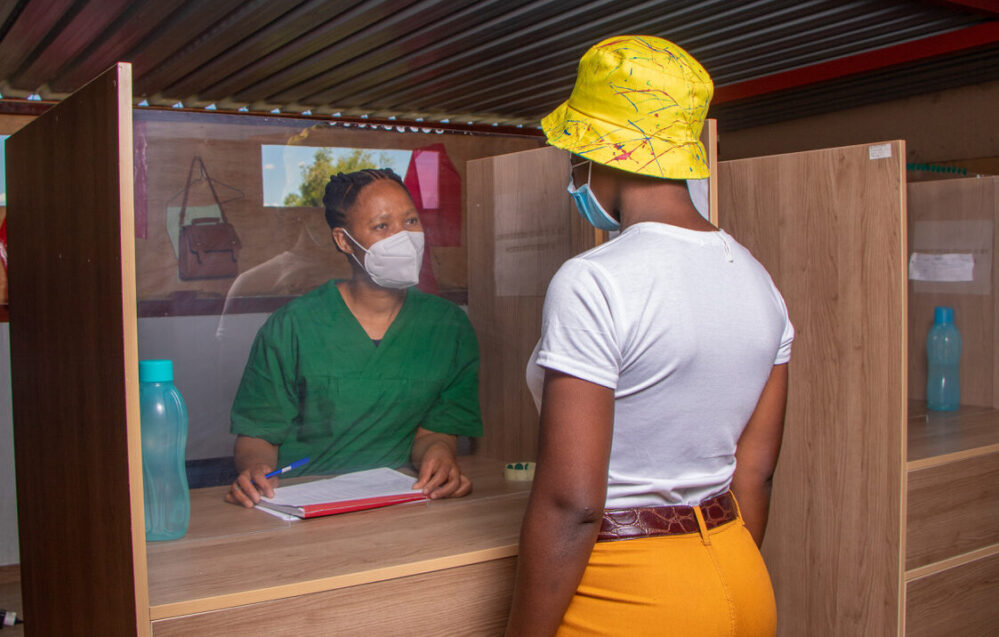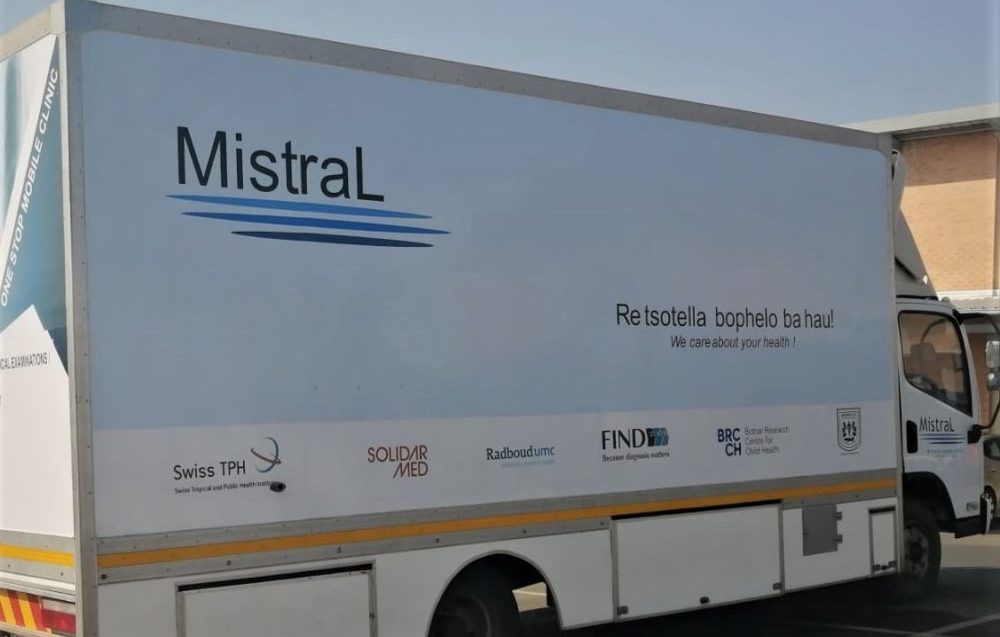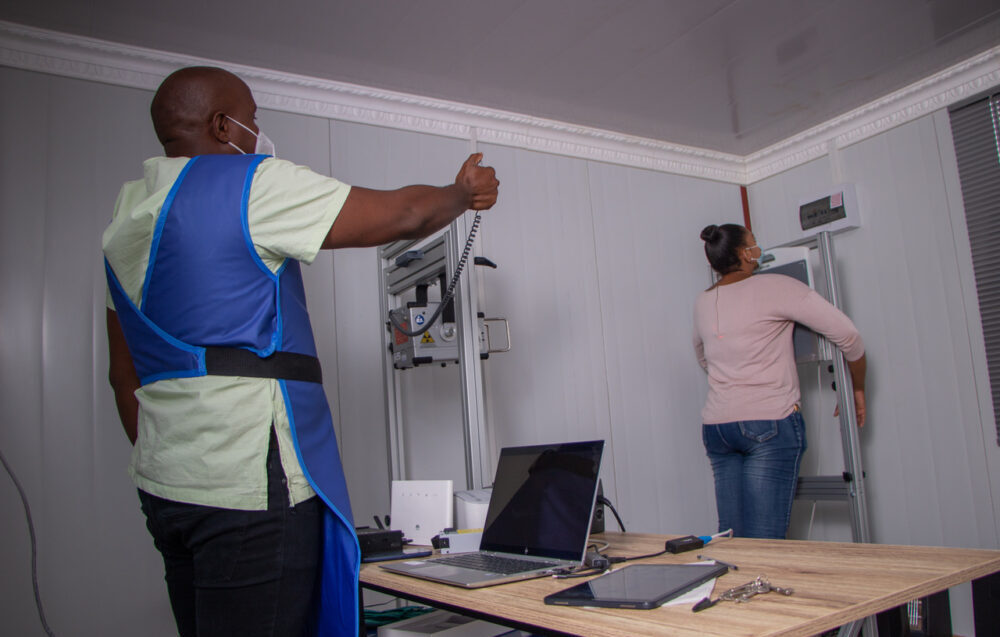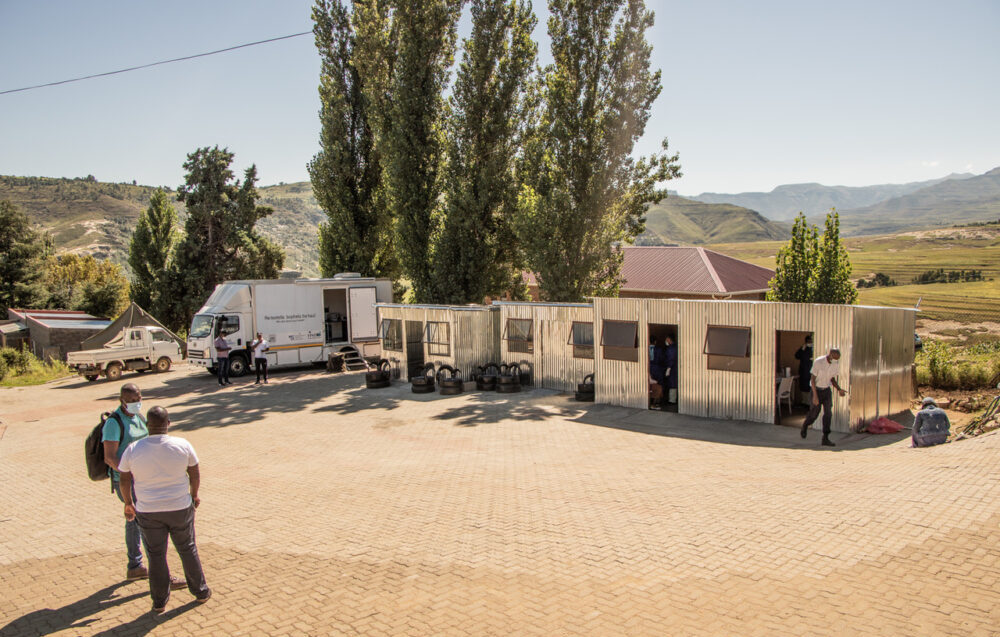MistraL: Mitigation Strategies for Communities With COVID-19 Transmission in Lesotho Using Artificial Intelligence on Chest X-rays and Novel Rapid Diagnostic Tests
For mitigation strategies to be effective and efficient against COVID-19, they must be context-specific and take local conditions into account. In low- and middle-income countries, limited resources and fragile healthcare systems often dictate what is feasible. In this project, researchers combine artificial intelligence, portable chest X-ray machines and antigen-based diagnostic tests to enable and improve the diagnosis of COVID-19 patients in settings with limited resources.
COVID-19 is straining every country’s healthcare system, especially those of resource-constrained countries. Furthermore, essential disease control and prevention programmes like those for HIV and tuberculosis (TB) are disrupted. Similar collateral damage to healthcare services has been observed in previous epidemics, such as the Ebola virus disease outbreak of 2014–2015 in West Africa. Effective mitigation strategies need to be adapted to the specific situation faced by countries with limited resources and fragile healthcare systems.
In this project, the consortium will develop a mitigation strategy for the Butha-Buthe and Mokhotlong districts in Lesotho, a lower-middle-income country with one of the highest HIV and TB prevalence in the world and with 50% of the population living below the poverty line. Building on well-established collaborations and networks, researchers will create novel COVID-19 screening, triage and treatment centres in Lesotho by using artificial intelligence with digital chest X-rays to detect COVID-19 and TB pneumonia. Additionally, the project will select the most promising antigen-based SARS-CoV-2 rapid diagnostic tests and evaluate the diagnostic performance and the operational characteristics of the tests under pragmatic conditions. Furthermore, the researchers will establish a digital X-ray image repository to allow developers to optimise and validate image analysis and diagnosis software solutions. Finally, causes of respiratory infections other than TB and COVID-19 will be assessed using multiplex PCR testing.
This innovative and comprehensive project has been tailored for the health care system in Lesotho, but might also become a model for other countries with similar conditions. The multi-disciplinary and international approach will help to improve the health of the people with COVID- 19 infection or co-morbidities (TB and HIV) and to protect healthcare workers and the fragile health systems in the region.
Banner image above: Digital X-ray results of the lung region of a patient. Software CAD4COVID will use artificial intelligence algorithms to produce a heatmap (on right) indicating regions of abnormality as well as a score (0-100) for suspicion of COVID-19.

A patient presenting COVID-19 like symptoms is enrolled in the MistraL study. Photo: SolidarMed & Swiss TPH

A truck is transformed into a mobile health clinic in Lesotho. The mobile clinic is the result of a multi-country, multi-institutional and multi-disciplinary consortium of researchers that aim to develop effective mitigation strategies for countries with limited resources and fragile healthcare systems. Photo: SolidarMed & Swiss TPH

Within the MistraL truck, a person with COVID-19-like symptoms receives a chest-X-ray. This X-ray is then assessed the same day by the CAD4COVID and the CAD4TB software to provide probability for presence of COVID-19 pneumonia or tuberculosis. Photo: SolidarMed & Swiss TPH

The MistraL site at St Charles Hospital Seboche, Lesotho, showing the screening and testing facilities as well as the truck with the digital chest-X-ray machine. Photo: SolidarMed & Swiss TPH

